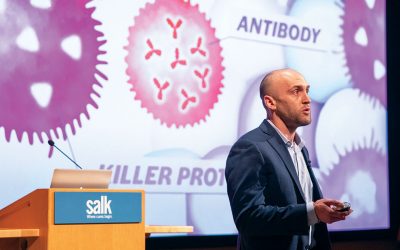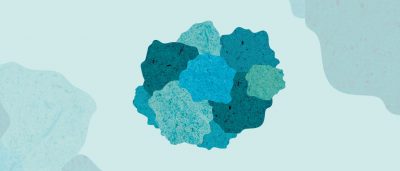In The News
Joan and Irwin Jacobs — A perfect match
Joan and Irwin Jacobs donate $100 million, a transformative gift, helping to launch Salk’s five-year, $500M philanthropic and scientific Campaign for the Future.
Frontiers
How computational biology is making us smarter
The Salk Institute is embracing the artificial intelligence revolution and inventing new ways to investigate life. Machine learning, deep learning and other AI techniques are being used to probe massive data sets, identify useful information and make accurate predictions.
Insights
Natalie Luhtala — Shaping pancreatic cancer research to have real world applications
This year, Staff Scientist Natalie Luhtala celebrates her 10-year work anniversary at the Institute. In her current role, she’s directing a project examining an elusive signaling pathway to identify new targets for treating pancreatic cancer.
President’s Letter
“Science is changing rapidly, with powerful new technologies, including cloud computing, artificial intelligence and new approaches to conduct multi-omic sequencing and analysis, creating new ways to approach some of biology’s biggest problems.”
Discoveries
 Measuring chemical markers to determine brain cell type
Measuring chemical markers to determine brain cell typeSalk faculty Joseph Ecker, Margarita Behrens and colleagues analyzed over 100,000 mouse brain cells using a scientific technique that identifies a chemical pattern called methylation, which is one way cells control gene expression. The scientists then applied this technique to thousands of cells from 45 different regions of the mouse brain and identified 161 clusters of cell types, each distinguished by its pattern of methylation. The team also showed that the methylation patterns could be used to predict where in the brain any given cell came from—not just within broad regions but down to specific layers of cells within a region. This means that eventually drugs could be developed that act only on small groups of cells by targeting their unique epigenomics.
Read News ReleaseSpotlight
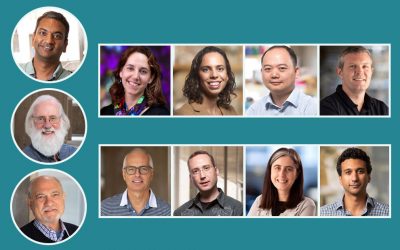
Funding Unique, Promising Ideas: The 2021 Salk Innovation Grants
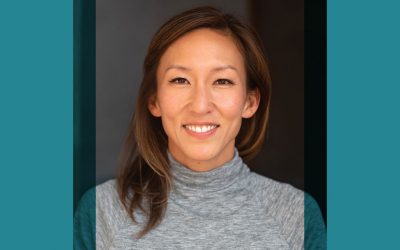
Kay Tye selected as Howard Hughes Medical Institute Investigator
Professor Kay Tye was selected as a Howard Hughes Medical Institute (HHMI) investigator, joining a prestigious group of more than 250 HHMI investigators across the United States who are tackling important scientific questions. Tye, who is a member of the Systems Neurobiology Laboratory and holds the Wylie Vale Chair, is known for her seminal work on the neural-circuit basis of emotion that leads to motivated behaviors, such as social interaction, reward-seeking and avoidance.

Christina Towers recognized as one of 2021’s Women of Influence in Life Sciences
Assistant Professor Christina Towers was recognized as one of 2021’s Women of Influence in the Life Sciences by the San Diego Business Journal. Towers focuses on uncovering how cancer cells recycle both their own nutrients and the power-generating structures called mitochondria in order to survive. Her research could lead to decreased cancer recurrence and improved cancer patient outcomes.
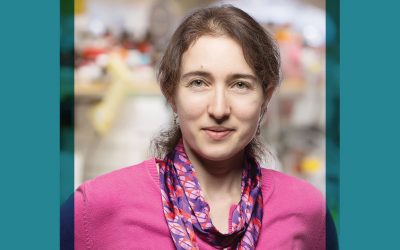
Tatyana Sharpee wins Delano Award for Computational Biosciences
Professor Tatyana Sharpee, who holds the Edwin K. Hunter Chair, was awarded the DeLano Award for Computational Biosciences from the American Society for Biochemistry and Molecular Biology. The award recognizes the innovative development or application of computer technology to enhance research in the life sciences at the molecular level. Sharpee’s lab studies how the brain and other biological systems work and uses information theory to quantify the activity of neurons.
Events
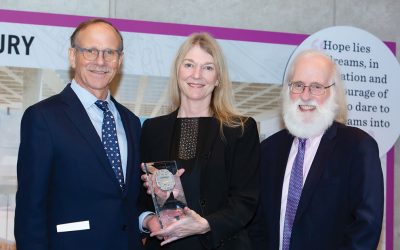
Salk Awards Medal of Research Excellence to Cori Bargmann
